MercoPress. South Atlantic News Agency
Stories for June 2012
-
Monday, June 18th 2012 - 00:12 UTC
Cameron will personally present Falklands message to Kirchner
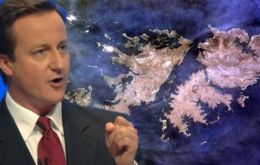
By Graham Bound, London - Argentina's President Cristina Fernandez will get her wish on Monday or Tuesday, when she meets Prime Minister David Cameron in the fringes of the G20 meeting in Mexico to talk about the Falkland Islands.
-
Saturday, June 16th 2012 - 06:01 UTC
UN Economic commission forecasts 3.7% growth in Latam and Caribbean this year
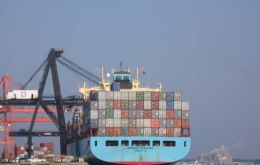
The latest ECLAC report, “Macroeconomic report on Latin America and the Caribbean, Jun 2012” shows that activity in the first months of this year has been stronger tan in the second half of 2011 despite considerable global uncertainty and volatility.
The report estimates Latam and Caribbean growth for this year at 3.7% compared to 4.3% in 2011. -
Saturday, June 16th 2012 - 05:57 UTC
Chilean Lower House votes unanimously to end “copper law” that finances the military
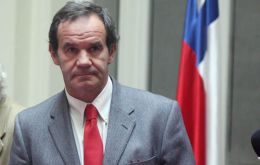
Chilean Defence Minister Andrés Allamand achieved this week a unanimous vote in the Chamber of Deputies for the proposal to change the funding system for the Armed Forces. The proposal, should it gain approval in the Senate, would put an end to the so-called “copper law,” which has been in effect since 1958.
-
Saturday, June 16th 2012 - 05:55 UTC
Chile’s leaves basic rate unchanged at 5%; annual inflation in May, 3.1%
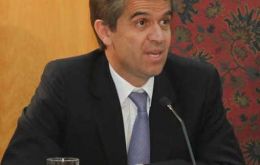
Chile’s central bank kept its benchmark interest rate unchanged at 5% for a fifth consecutive month as inflation in the world’s top copper producer eased and unemployment continued to decline.
-
Saturday, June 16th 2012 - 05:54 UTC
US foreign military sales already a record 50 billion dollars, up 70% from 2011

US Assistant Secretary of State for Political and Military Affairs Andrew Shapiro said that 2012 is already a record-breaking year for US foreign military sales, which are government-to-government sales.
-
Saturday, June 16th 2012 - 05:14 UTC
C24 chair calls Falklands’ referendum ‘political ploy’; praises Argentine president

The chair of the UN Decolonisation Committee Ecuadorian ambassador Diego Morejón Pazmiño described the UK announcement of a referendum in the Malvinas Islands as a “political ploy”, insisting that the Falkland Islanders can not appeal to the right of self determination.
-
Saturday, June 16th 2012 - 03:07 UTC
Parents of US child born in 2011 will spend 234.900 dollars until he is 17

The United States Department of Agriculture reported that a US middle-income family with a child born in 2011 can expect to spend about 234.900 dollars for food, shelter and other necessities to raise him or her over the next 17 years, an increase of 3.5% from 2010.
-
Saturday, June 16th 2012 - 03:05 UTC
Ireland’s banking advice to Spain: “imagine the worst and double it”
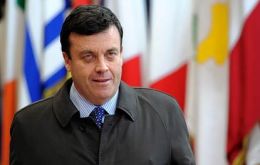
Ireland has this banking advice for Spain: imagine the worst and double it. Like Ireland, Spain sought a bank bailout after being felled by a real-estate crash. Now, just as the Irish did, the Spanish are awaiting the results of outside stress tests gauging the size of the hole in the banking system.
-
Saturday, June 16th 2012 - 03:03 UTC
“Who cares what an American official can think about the situation in Spain?”

Economics Nobel prize (2011) Thomas Sargent admitted feeling “ashamed” when some officials from the US government make recommendations to Europe, Spain and other countries on what policies they should adopt to climb out of the current crisis.
-
Saturday, June 16th 2012 - 03:00 UTC
Pitting the idea of growth against budgetary rigour is ‘simply rubbish’ says Merkel
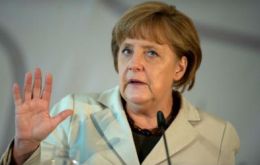
Germany's Angela Merkel regretted the lack of confidence among Euro leaders and warned against “mediocrity” as she stood firm against “growth quick fixes” to Europe's crisis.
